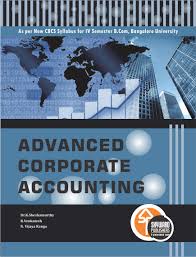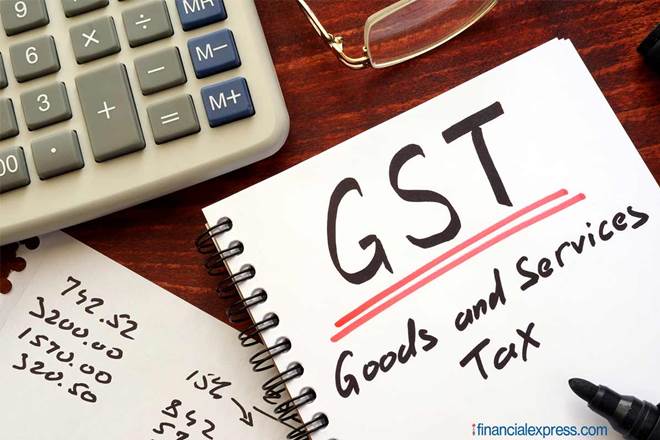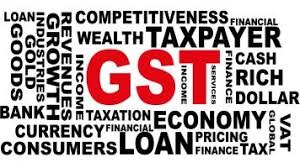| Programme: Bachelor of Commerce (General) | |||||
| Academic Year: 2019-2020 | |||||
| Course Title: Advanced Corporate Accounting | |||||
| Course Code: BC 608 HPW: 5 | |||||
| Course Type: DSE Credit: 5 | |||||
| Semester: VI Section A & B | |||||
| Course Objective: The main objective of the course is to gain knowledge of AS-19 & 21 and format accounts. It also aims at: 1) Providing an understanding of the presentation and analysis of Financial reporting for the owners as well as external users. 2) Comprehend the concepts and standards underlying the accounting procedures used to measure business performance of select corporate groups. | |||||
| Course Outcome: On completion of the course the students : CO1) Acquaintance with the regulatory environment and framework in which the companies are registered. CO2) Will acquire a strong foundation in accounting and reporting requirements of the Companies Act. CO3) Will acquire the ability to account for a range of advanced financial accounting issues and prepare consolidated accounts for a Corporate Group. CO4) Apply the accounting procedures for Lease in the books of Lessee and Lessor. CO5) Understand the influence of inflation on the purchasing power of money. CO6) Understand the Scope of Social Resonsibility Accounting CO7) Familiarizing the concept of Human Responsibility Accounting. CO8) Computation of HRA, accounting price level changes and inflationary accounting. |
| Reference Books: These books gives comprehesive understading of theoretical concepts and aspects of coursework. | |||||
| 1. Corporate Accounting: R.L.Gupta, M.Radha Swamy, Sultan Chand 2. Advanced Carporate Accounting: Srilatha Reddy, Himalaya 3. Advanced Carporate Accounting: Dr. Thangapandi, PBP 3. Advanced Accounting: Tulsania, TataMcGraw-hill Publishing Company 4. Corporate Accounting: Jain & Narang, Kalyani Publications 5. Advanced Accounting: S.M.Shukla, Sahitya Bhavan 6. Corporate Accounting: Prashanta Athma, Himalaya Publishers. 7. Advanced Accounting (Vol. II): Chandra Bose, PHI | |||||
| Session’s Teaching – Learning Plan (55 Minutes) | |||||
| Time (Minutes) | Topic | Teaching – Learning Plan | |||
| 5 | Entry of Students and Faculty into class room | ||||
| 5 | Recap & Question Hour of Previous Session | Lecture & Discussion | |||
| 35 | Topic for the Day | Lecture & Discussion | |||
| 5 | Doubts Clarification & Question and Answers | Interaction | |||
| 5 | Conclusion and Summary | Lecture | |||
| *Assessment Procedure (100 Marks) | |||||
| Internal Assessment (Average of Two Internals 15 Marks each) | 15 Marks | ||||
| Section A – Multiple Choice Questions – 10X1/2=5M | |||||
| Section B – Fill In The Blanks – 10X1/2=5M | |||||
| Section C – Answer the following in Single Statement – 5X1=5M | |||||
| Assignment | 05 Marks | ||||
| Assignment task will be given during the regular sessions, student should submit as per the deadlines adhering to the guidelines instructed by the course instructor. | |||||
| Semester End Examination | 80 Marks | ||||
| Section A – Answer Any Five of the Following – 5X4=20M | |||||
| Section B – Answer all the questions – 5X12=60M | |||||

- Teacher: Dr. SRI SAI CHILUKURI
Student will learn the business concepts and methods used to report Managerial performance information for making sound business decisions in managing the firm. Also, applying the financial perspective of accounting for costs.
COURSE OUTCOMES:
CO1: Apply managerial accounting and its objectives in a way that demonstrates a clear understanding of ethical responsibilities;
CO2: Analyze cost-volume-profit techniques to determine optimal managerial decisions;
CO3: Perform cost variance analysis and demonstrate the use of standard costs in flexible
CO4: Identify the guidelines for selecting the most profitable set of products or services
CO5: Prepare a master budget and demonstrate an understanding of the relationship between the components;
CO6: Identify relevant cost in decision making.

- Teacher: PRIYANKA S
Course Objective: The course has been designed to make students understand the new
Indirect taxes, i.e., Goods and Services Tax. It helps them to understand the practical
implications involved in GST and application of GST rules in Tally.
Course Outcome:
CO1: Know about importance of Indirect taxes in India and the journey of GST in India
since the year 2004.
CO2: Know about the application of GST in Tally.
CO3: List out the accounts to be maintained as per GST laws and various returns to be
filed to get the input tax credit.
CO4: Know about application of GST in case of businesses which are service-oriented
and rates for service businesses and their application mechanism.
CO5: Know about Application of GST in tally ERP 9, recording business transaction in
relating to business transaction and other relevant areas which have to be filed by the
business entity as per GST law.
CO6: Creating GST invoices etc in Tally ERP 9 (Basic Introduction)
CO7: understand the reasons behind the implementation of GST in India and its effect on all
the sectors of Economy.
CO8: Practical exposure to GST in businesses.

- Teacher: AMULYA VUNNAVA
Course Objective: The course has been designed to make students understand the new
Indirect taxes, i.e., Goods and Services Tax. It helps them to understand the practical
implications involved in GST and application of GST rules in Tally.
Course Outcome:
CO1: Know about importance of Indirect taxes in India and the journey of GST in India
since the year 2004.
CO2: Know about the application of GST in Tally.
CO3: List out the accounts to be maintained as per GST laws and various returns to be
filed to get the input tax credit.
CO4: Know about application of GST in case of businesses which are service-oriented
and rates for service businesses and their application mechanism.
CO5: Know about Application of GST in tally ERP 9, recording business transaction in
relating to business transaction and other relevant areas which have to be filed by the
business entity as per GST law.
CO6: Creating GST invoices etc in Tally ERP 9 (Basic Introduction)
CO7: understand the reasons behind the implementation of GST in India and its effect on all
the sectors of Economy.
CO8: Practical exposure to GST in businesses.

- Teacher: AMULYA VUNNAVA